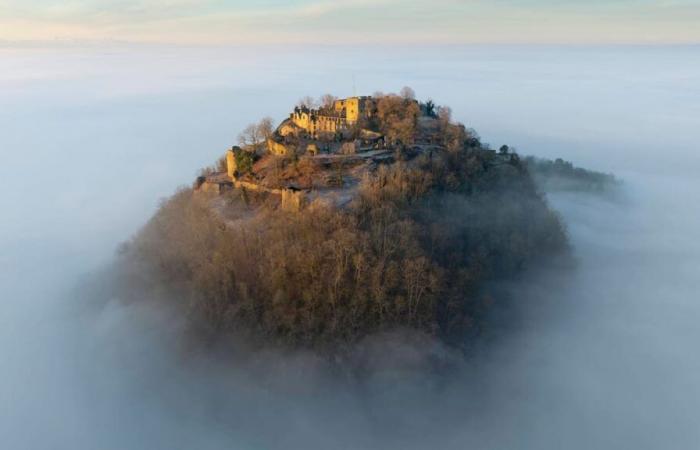Inversion weather situation on New Year’s Eve
Poison cloud possible over Germany – meteorologists sound the alarm
12/28/2024 – 3:01 p.mReading time: 2 min.
Like a bell, warm air currently holds pollutants on the ground and does not allow them to escape. Difficult days await people who are already weak.
Graduate meteorologist Dominik Jung from the weather portal “wetter.net” warns of an “invisible but poisonous cloud” over Germany. Hoch “Günther” makes life a stressful test for many people, the “Frankfurter Rundschau” quoted the expert as saying.
Fine dust, exhaust gases and other pollutants would collect in the lower air layers. Without wind or rain, these dangerous particles stayed right where people breathe.
The German Weather Service (DWD) also confirmed: The current weather situation means that pollutants in the air cannot escape. We are talking about a so-called inversion weather situation, i.e. a reversed weather situation. Unlike usual, the upper air layers are warmer than the lower ones.
According to DWD meteorologist Christian Herold, it is currently unusually warm in the low mountain ranges, with up to eleven degrees measured there. In the valleys and river lowlands, however, it is cold, sometimes with temperatures below zero. The result: The air stratification over Germany is relatively stable, and the otherwise usual vertical air exchange does not occur. The fine dust is stuck in the lower layer like under a bell.
On Saturday morning, increased pollutant levels were found in numerous places in the southern half of Germany. According to data from the Federal Environment Agency, the air we breathe in several cities can currently be described as “poor” because the exhaust gases emitted by vehicles, heating plants and fireplaces remain on the ground.
In Kempten, Bavaria, for example, 35 micrograms per cubic meter were measured for particularly fine dust (particle size up to 2.5 micrometers). The values were also above the limit of 25 micrograms in parts of Munich, Würzburg, Bamberg, Passau as well as in Tübingen, Kehl and Neuenburg in Baden-Württemberg as well as in Worms and Dresden.
The Federal Environment Agency warns: “Adverse health effects may occur in sensitive people.” Those affected should avoid physically strenuous outdoor activities.
According to the DWD, the inversion weather situation could last until New Year’s Eve – which would further increase the burden of bad air due to the fireworks. According to the Federal Environment Agency, tons of fine dust are released by burning fireworks – around one percent of the total amount of fine dust released in a year in Germany in just one night. In many places, the pollution caused by bad air on New Year’s Eve is higher than anywhere else in the entire year.
Inhaling fine dust endangers your health. “The effects range from temporary impairment of the respiratory tract to an increased need for medication in asthmatics to respiratory diseases and cardiovascular problems,” writes the Federal Environment Agency.
Swiss






